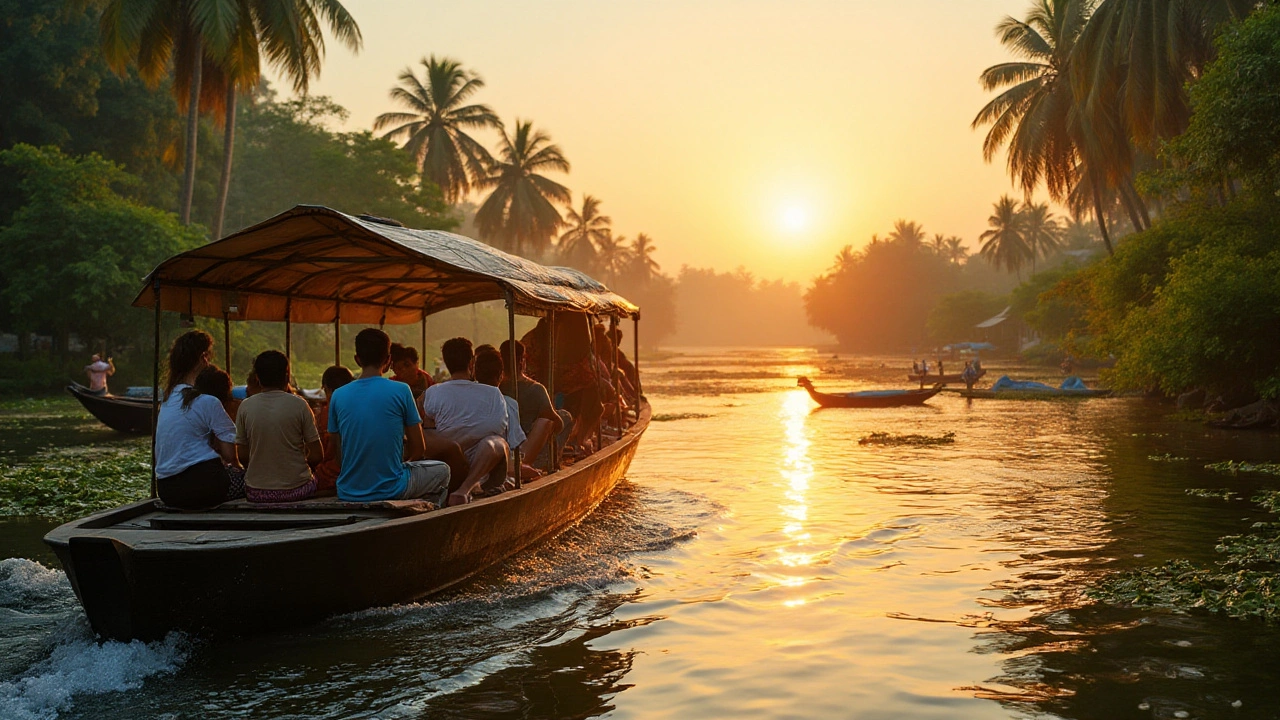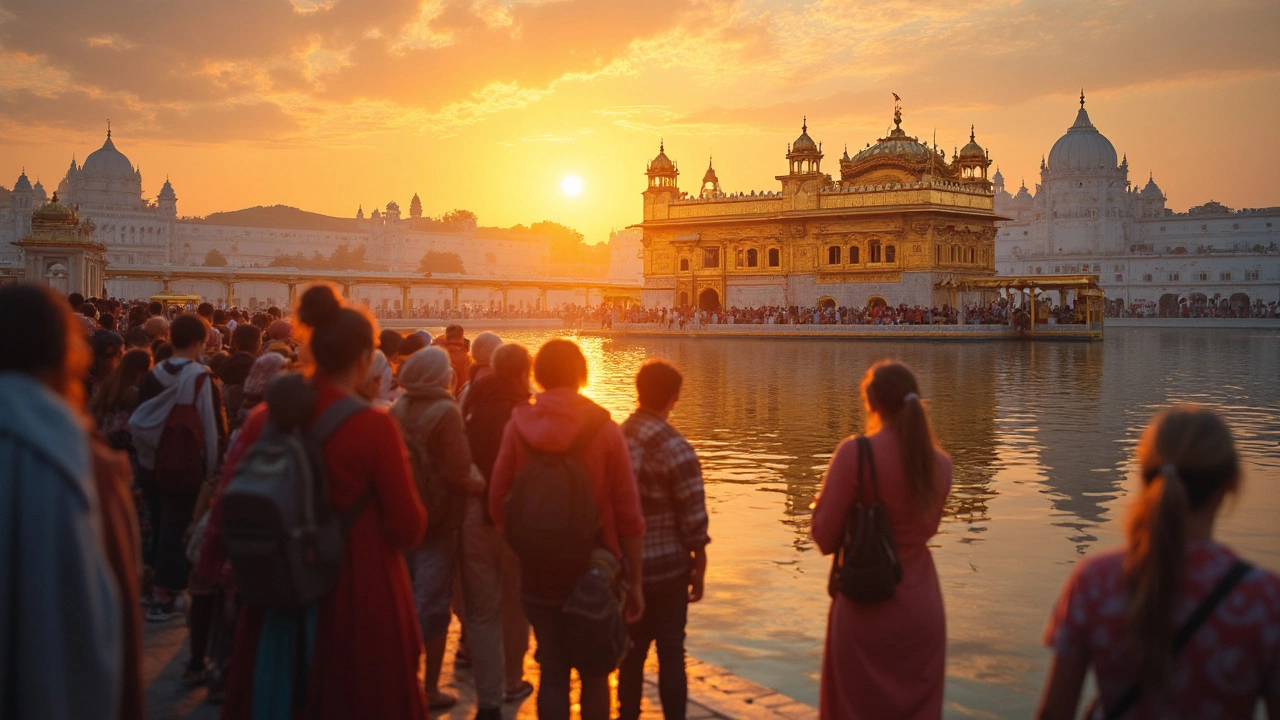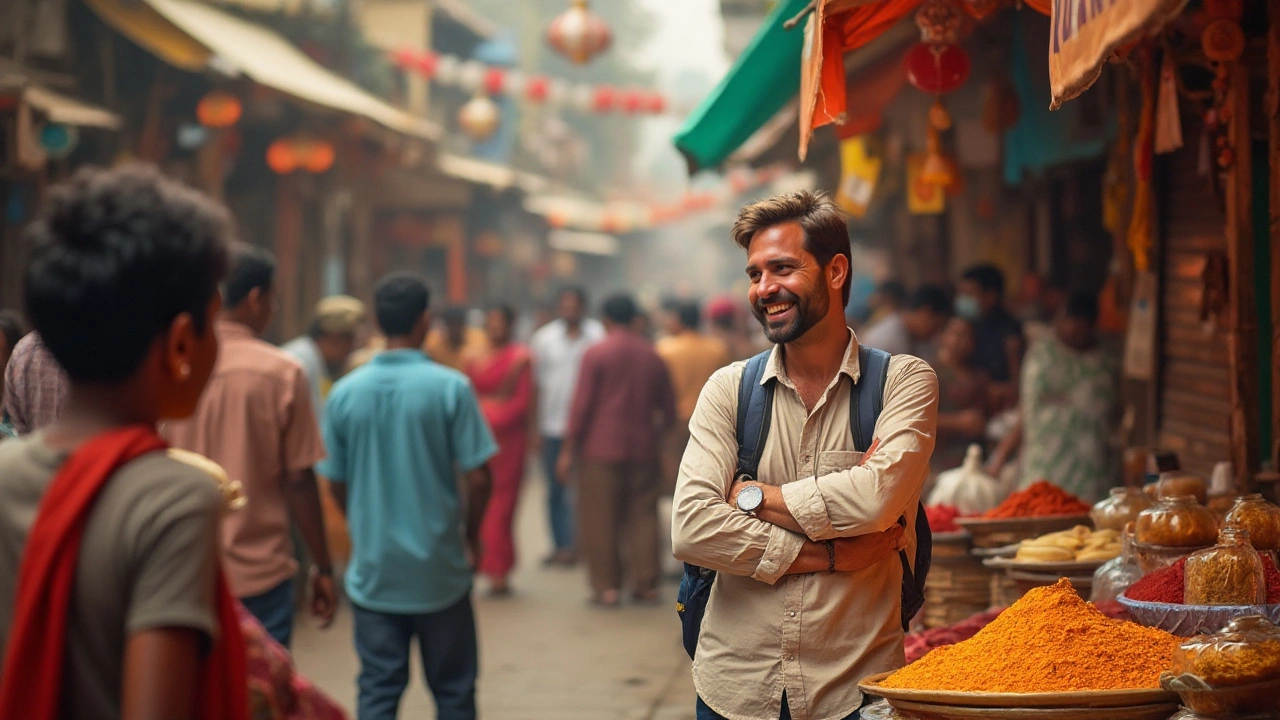Is Kerala a Safe Haven for Tourists in 2025?
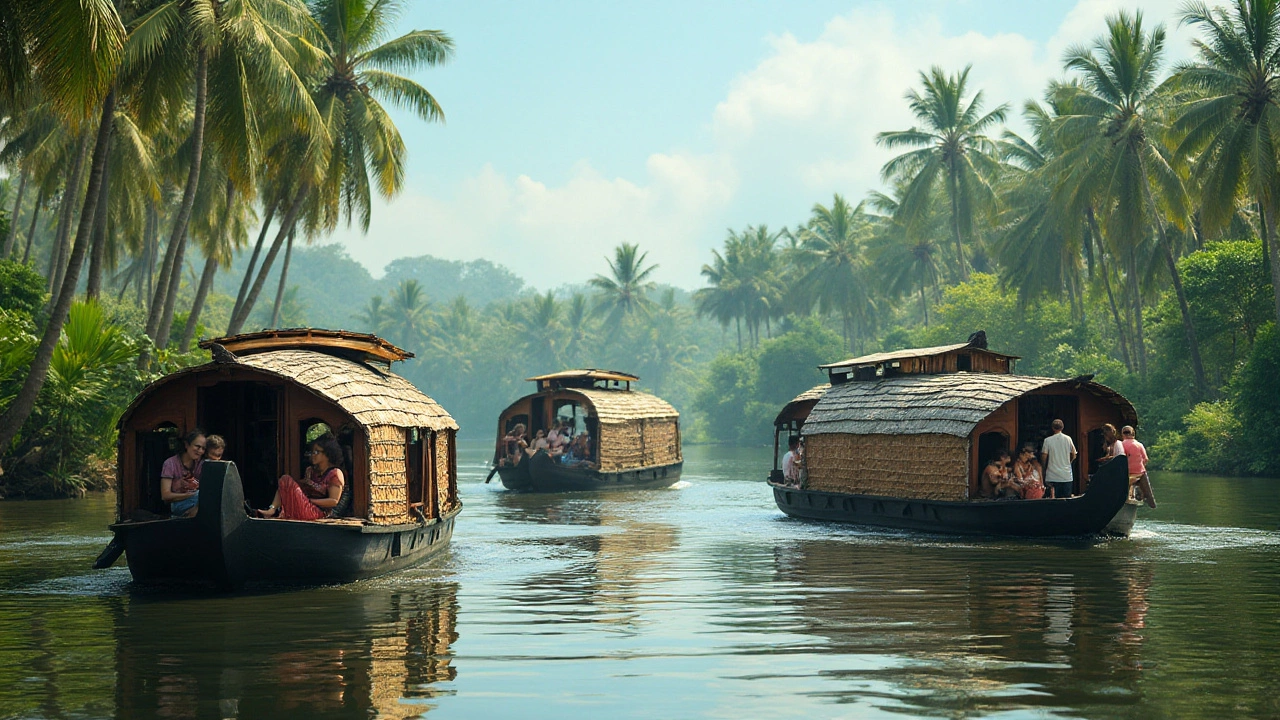
Kerala, often referred to as 'God's Own Country', continues to captivate travelers from across the globe. Known for its breathtaking backwaters, vibrant festivals, and diverse wildlife, it's no wonder tourists flock to this South Indian gem. But as is true with any travel destination, safety remains a top concern for many travelers.
While Kerala has always been relatively safe for tourists, understanding its current safety landscape can enhance your travel experience. This guide unpacks the essentials of staying safe while exploring the lush land of Kerala in 2025. With practical advice and essential tips, this article aims to help you enjoy the beauty and culture of Kerala safely and responsibly.
- Understanding Kerala's Current Safety Landscape
- Navigating Health and Wellness
- Cultural Considerations for Tourists
- Best Practices for Safe Travel
- Must-Visit Safe Spots in Kerala
Understanding Kerala's Current Safety Landscape
When considering travel to Kerala, one of the foremost concerns is the safety of this vibrant destination. Recently, the Kerala government has implemented a host of measures to ensure that the region remains welcoming and secure for all visitors. The state maintains a low crime rate relative to other parts of South India, which is reassuring. However, like anywhere else, tourist-specific challenges do exist, and being informed can make all the difference in having a safe journey.
The local authorities have established a strong police presence in tourist-heavy areas, focusing on preventing petty crimes like pickpocketing and scams that could tarnish the visitor experience. In places like Kochi and Trivandrum, CCTV cameras are strategically placed to monitor public areas, which significantly contributes to the overall sense of security. Kerala tourism has also emphasized the importance of tourist-friendly facilities catering to safety, such as dedicated help desks and information centers in major tourist areas.
To further bolster safety, the state has initiated programs to train locals in providing first responder assistance, which has been a notable success according to a recent study published by the Kerala Tourism Department. This proactive approach not only boosts the confidence of visitors but also fosters a sense of community safety. Visitors can also use well-regulated public transport systems that are regularly inspected to ensure compliance with safety norms, further adding to the safety matrix.
Kerala Police Chief Ramesh Chennithala stated, “Our mission is to provide a safe and enjoyable environment for tourists while maintaining the cultural ethos of our region.”
One shouldn't underestimate the natural challenges when visiting any part of India. The monsoon season, for instance, poses risks of landslides and flooding in certain areas. Tourists are advised to stay updated with weather forecasts and heed warnings issued by local authorities. In recent seasons, there have been substantial improvements in weather prediction technologies, enabling better management of tourists during such challenges. This commitment to safety extends to health as well, with widespread availability of medical facilities and professional healthcare providers experienced in treating visitors.
Moreover, the incidence of communicable diseases remains low, owing to effective public health campaigns and widespread vaccination programs. This robust healthcare infrastructure means tourists can travel with peace of mind, knowing that assistance is readily available if needed. Ultimately, by staying informed and adhering to local advice, travelers can fully immerse themselves in the beauty that Kerala offers, all while enjoying a safe experience.
Navigating Health and Wellness
When planning a trip to Kerala, prioritizing health and wellness is paramount. Known for its pristine natural beauty and therapeutic Ayurvedic practices, Kerala not only provides picturesque travel experiences but also offers opportunities for rejuvenation and relaxation. As travelers explore the diverse landscapes and vibrant cultures, it's important they are well-equipped with essential health information to keep their trips worry-free.
Preparing for health-related concerns might start with vaccinations. While Kerala is not considered high risk for any severe endemic diseases, it's recommended to have up-to-date immunizations such as Hepatitis A and Typhoid. These measures help safeguard against common issues that could arise from changes in diet and environment. It's also crucial to take measures to prevent mosquito-borne illnesses, despite the low prevalence. Conservative use of insect repellent and opting for accommodations with mosquito nets or air conditioning can be very effective.
One can't discuss Kerala travel safety without mentioning the traditional wellness practices like Ayurveda, which have been practiced for thousands of years. Kerala is renowned worldwide for these therapeutic treatments that support both physical and mental wellbeing. These treatments utilize locally sourced herbs and oils that are quite effective for relaxation and detoxification. Many tourists visit Kerala for tailored spa retreats that include Ayurvedic massages and consultations. Remember, though, to choose certified centers that follow authentic Ayurvedic practices to ensure a safe and enriching experience.
No travel experience is quite complete without indulging in local cuisine. However, while the spicy and aromatic dishes are an exciting exploration for the palate, it’s prudent to eat food from clean and well-rated establishments to avoid gastro-related issues. Drinking bottled water rather than tap water is advisable, making sure that safety and hygiene standards are met when consumed to keep illnesses at bay. A handy tip is to carry a first aid kit that includes rehydration solutions, especially if planning to travel to remote areas.
Accessing healthcare in Kerala is relatively easy, as it boasts one of the best healthcare systems in India. Facilities range from government-run hospitals to private clinics, many of which have English-speaking staff to accommodate foreign tourists. For peace of mind, having travel insurance that covers medical expenses is highly advisable. It is comforting to know that help is readily available if needed and one can be treated with the highest standard of care while navigating this beautiful region.
As tourism continues to grow, Kerala remains committed to keeping its visitors safe and healthy. This commitment is seen in governmental initiatives that focus on maintaining hygiene and health protocols, crucial during times when health crises have impacted travel worldwide. This keen focus on safety ensures that tourists can immerse themselves in the enchanting experiences that Kerala has to offer without any health concerns overshadowing their stay. With proper planning and mindfulness, traveling through Kerala can be both safe and refreshing, offering a perfect balance between adventure and tranquility.
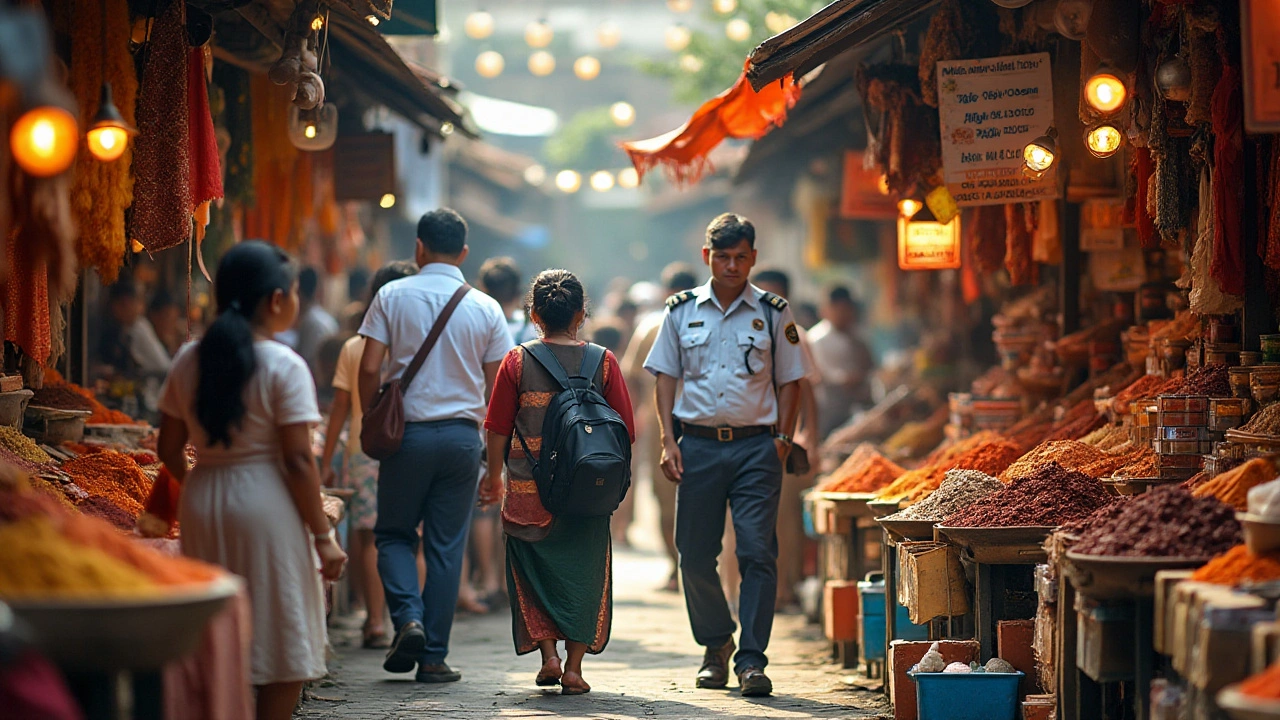
Cultural Considerations for Tourists
Kerala's cultural fabric is as rich and varied as its landscapes, and understanding these cultural nuances can greatly enhance any travel experience. Integrating into the local way of life, even for a short period, not only enriches your visit but also ensures a more respectful interaction with the local population. One of the most striking aspects of Kerala’s culture is its deep-rooted traditions in dance and music. The classical dance form Kathakali, known for its elaborate costumes and expressive gestures, tells ancient tales and is performed frequently across the state. Attendees can experience the narratives of Hindu mythology unfold in vibrant performances, thus gaining insight into the region’s spiritual life.
When visiting Kerala, tourists should be aware that it is one of the more progressive states in India, with a high literacy rate and significant emphasis on education. This societal attribute opens avenues for meaningful conversations with locals, who often admire visitors taking genuine interest in their cultural heritage. It's essential to dress modestly, especially when visiting religious sites such as temples or attending festivals. For women, wearing a sari or a churidar-kurta showcases respect for cultural norms, while men might opt for the traditional mundu.
The culinary scene in Kerala is another cultural highlight that visitors shouldn't miss. Known for its unique blend of spices, coconut, and coffee, the cuisine here reflects the region’s longstanding spice trade history. Trying local specialties, such as appam with stew or Kerala's fish curry, offers a deep dive into the state’s diverse palate. While enjoying the food, it is crucial to remember that eating with hands is customary; it symbolizes a connection with the food. For some, this practice might be new, but locals appreciate your willingness to immerse yourself in their ways.
Tourism in Kerala is welcomed with warmth, yet understanding and respecting local customs can make interactions more meaningful. As someone who travels, you have the chance to act as an ambassador of your own culture. Approach conversations with kindness, patience, and openness to ensure gracious exchanges. According to the Kerala Tourism Department, nearly 1.2 million travelers explored the state in 2023, and with numbers expected to rise, the importance of cultural respect grows simultaneously.
A local historian once noted, "Kerala is a symphony of cultures, where each note counts. To truly experience it, one must listen carefully and engage thoughtfully."Such perspectives remind us how impactful it can be to share authentic experiences that transcend conventional sightseeing.
To summarize, visiting Kerala requires more than just following a travel itinerary—it's about connecting with its people, respecting their traditions, and cherishing the stories that make this part of South India uniquely beautiful. By absorbing the cultural ethos of Kerala, tourists not only safeguard their well-being but also leave behind echoes of goodwill that help preserve the diverse roots of this enchanting destination.
Best Practices for Safe Travel
Traveling to a new destination always stirs a mix of excitement and caution, especially in places as culturally rich and geographically diverse as Kerala. Safeguarding yourself while absorbing the essence of a new place is key to an enriching travel experience. Practicing common sense is often your best defense, and here, it can play a major role too. Ensuring that you plan your activities within daylight hours and staying aware of your surroundings are fundamental steps. Avoid isolated areas alone, particularly at night, as this could compromise your safety. It's always prudent to share your plans with someone back home and update friends or family about your whereabouts periodically.
Apart from these basic practices, tapping into technology can be greatly beneficial. Consider using travel-specific apps to plan your itinerary and find safe hotspots. Many apps provide real-time updates about local safety concerns. Another important step is keeping digital copies of essential documents like passports and identification. Should any situation arise, having easy access to these documents could save you from a heap of trouble. Embrace the local etiquette to build camaraderie. Understanding and respecting Kerala's cultural norms not only earns you goodwill but might stick you out like a sore thumb to less desirable attention. Don't hesitate to ask locals for advice on places to visit or avoid, as they often act as real-time guides understanding the pulse of their area.
Consider investing in a local SIM card for immediate access to mobile data, which is critical for maps and communication. Having the ability to navigate seamlessly using GPS can prevent directional mishaps. In crowded areas like markets, always keep an eye on personal belongings. Opt for a travel belt or secure pockets and avoid displaying cash or expensive gear openly. If you choose to indulge in Kerala's vibrant nightlife, approach it with discernment. Drink responsibly and know your limits. Secure your transport ahead, whether through reliable taxi services or ride-sharing apps. This way, there's no second-guessing late at night.
As travel expert and author Rick Steves often says, "The best trips are ones where we slow down, stay safe, and savor the local culture."
Additionally, incorporating some resources within arm's reach can be beneficial. Items such as reusable water bottles, portable chargers, and sturdy footwear add a layer of convenience and safety. The climate in Kerala is tropical, which requires lightweight clothing, sunscreen, and insect repellent for outdoor adventures. Above all, keep an open but cautious mind. The locals are exceptionally hospitable, and being inquisitive yet respectful will open up avenues to experiences you didn't think possible. Take heed of the local news, which often provides information pertinent to tourists. Lastly, remember travel insurance. It's a safety net that ensures unexpected events don't derail your explorations completely. These tips are not exhaustive but provide a robust foundation to venture forth into Kerala wisely and safely.
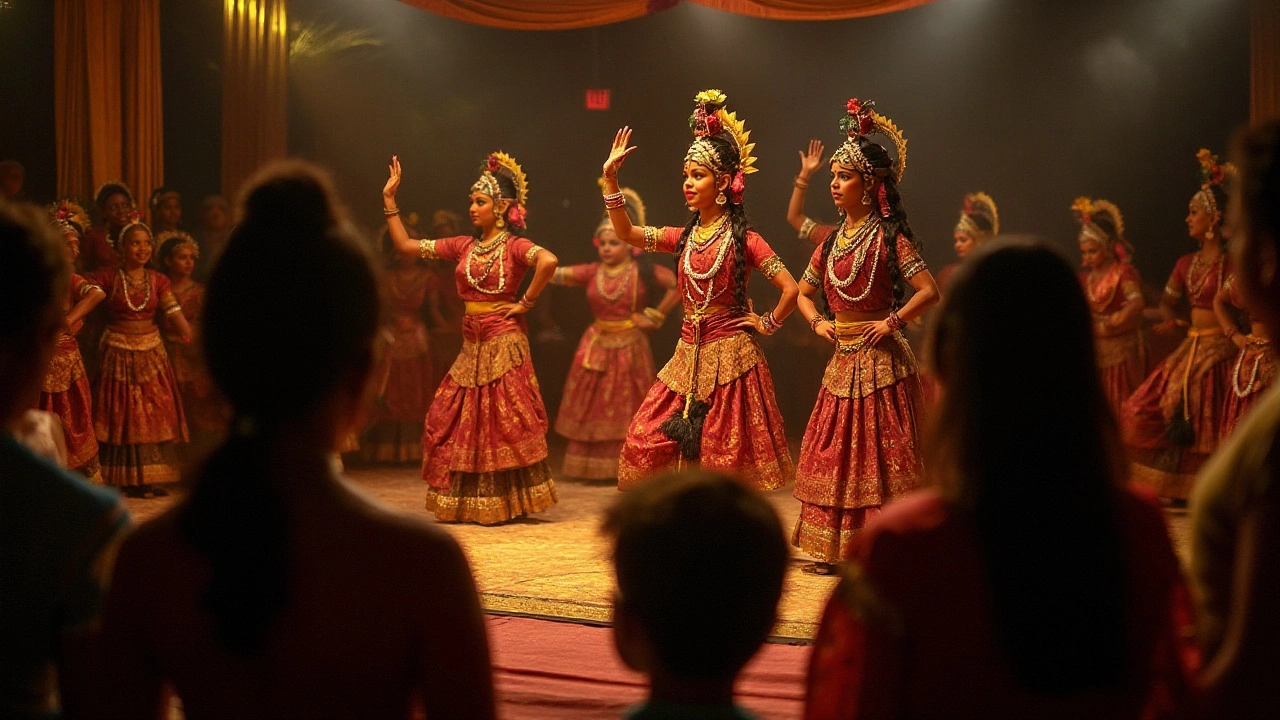
Must-Visit Safe Spots in Kerala
When planning a journey to Kerala, discerning travelers often ask, "Where are the safe spots I shouldn't miss?" The answer is quite abundant, as Kerala offers a wealth of attractions where safety meets splendor. Whether you're enchanted by tranquil backwaters or ancient temples, Kerala assures your well-being while you explore. Residing on the serene Malabar Coast, Kerala's tourism industry prides itself on providing hospitality that is both warm and secure.
The backwaters of Alleppey, often dubbed the "Venice of the East," boast scenic beauty regulated by strict safety protocols. Here you can float past emerald paddy fields on a traditional houseboat, known locally as a "kettuvallam." Observing life on the waterways, you become part of a cultural tapestry enriched by centuries. The safety of these backwaters isn't just in their calm currents; it's embedded in the community's dedication to Kerala travel safety. Cherished by many, Alleppey promises a surreal experience where security and serenity align seamlessly.
Moving from the water to the hills, Munnar calls with its cool breezes and sprawling tea plantations. This sanctuary serves as a refuge not just from India’s bustling cities but also from ordinary travel experiences. The landscape exudes tranquility, with lush plantations lying under the watchful eye of the Eravikulam National Park. This park, known for its rare Nilgiri Tahr, ensures tourist safety by maintaining guided tours and controlled paths, allowing you to fully enjoy the harmony between nature and nurture.
If your heart seeks the poetic and historical, do spend time at Fort Kochi. Here, cobblestone streets welcome wanderers to explore colonial architecture and vibrant street art. It’s not uncommon to hear the chatter of seafarers past among the Chinese fishing nets silhouetted against a setting sun. Local authorities and shopkeepers combine efforts to uphold a safe environment, making it a haven for art lovers and history buffs alike. In the words of renowned travel journalist, Leah Watson, "Fort Kochi combines security with a tangible sense of past glory, offering a unique and enjoyable experience in South India."
Kerala's beaches, too, promise relaxation without anxiety. Kovalam, with its golden sands and clear blue waves, stands as testament to Kerala's tourism commitment to visitor safety. Lifeguards patrol stretches of the beach regularly, ensuring that fun in the sun equates to peace of mind. Lighthouse Beach, especially, is a picturesque spot where you can lose yourself in the rhythmic sounds of the sea, comforted by the ever-present vigilance of those responsible for your safety.
Finally, Thekkady serves as a perfect blend of adventure and assurance within Kerala’s wilderness. Home to the Periyar National Park, it draws nature enthusiasts eager for a peek at elephants and exotic birds in their natural habitat. The park organizes daily guided treks and boat trips, reinforcing its dedication to a protected and informative experience for tourists. Offering both privacy and security, Periyar allows you to embrace nature’s pulse without worry. Such efforts underline South India travel as not only a suggestive adventure but one punctuated with thoughtful decisions regarding tourist protection.
